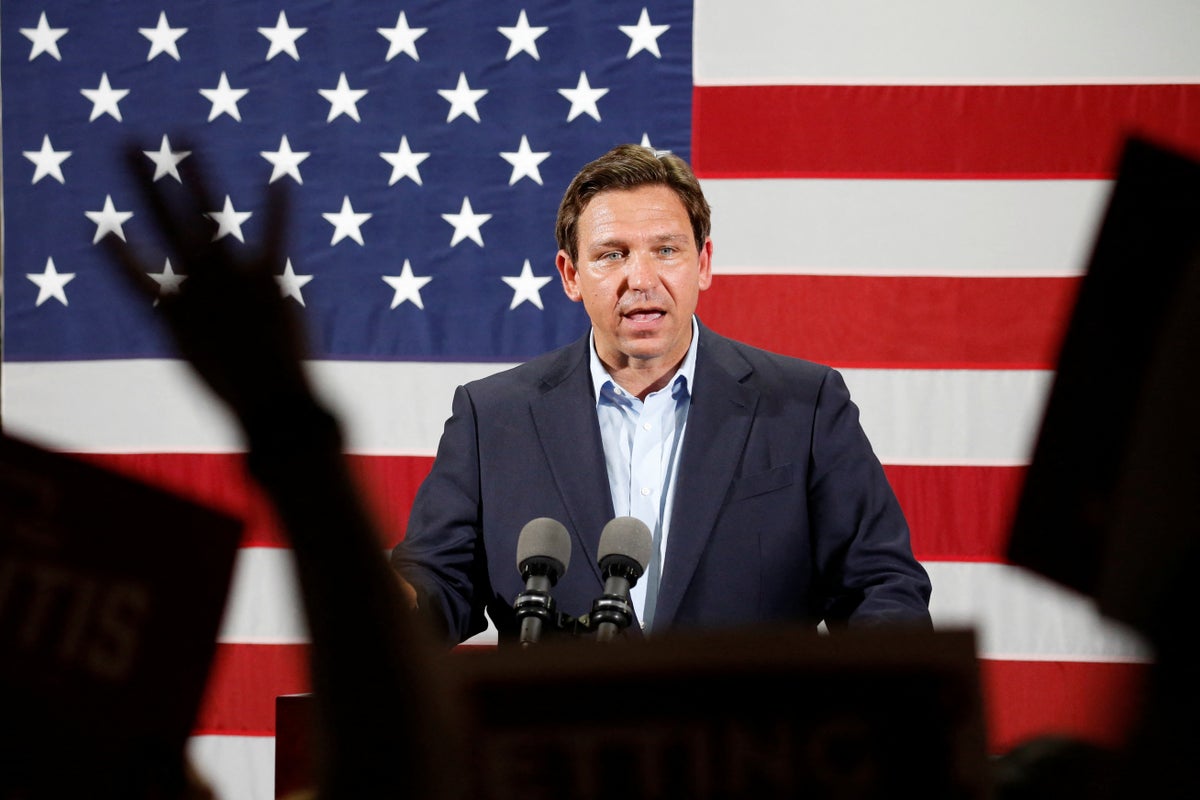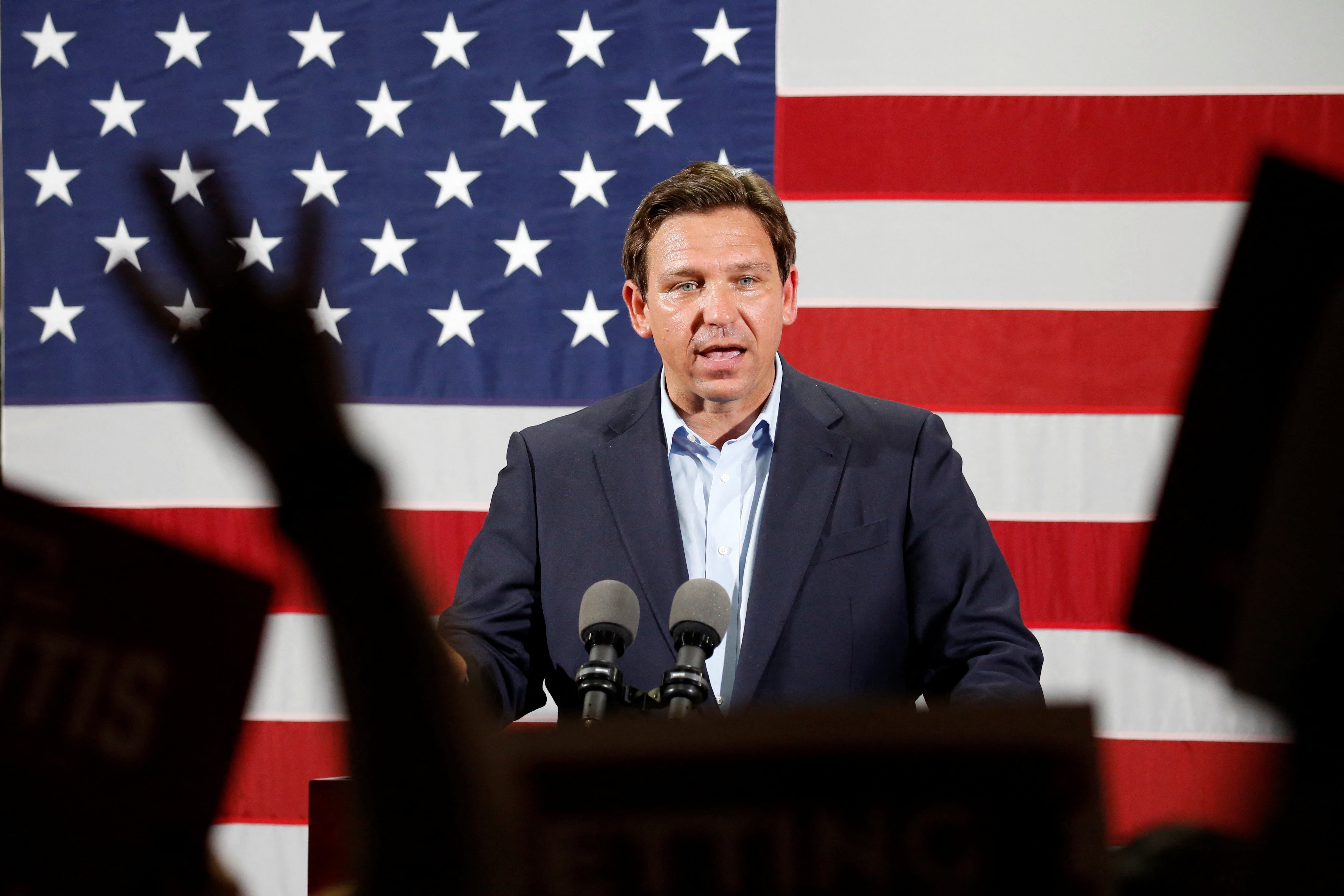
Florida voters have re-elected Republican Ron DeSantis to the governor’s office, a role that has become a lightning rod for national right-wing politics and fuelled his presumptive bid for the GOP’s 2024 presidential nomination.
According to Associated Press projections, Mr DeSantis has defeated Democratic candidate Charlie Crist, who resigned from his seat in the US House of Representatives in August to take on the governor.
In a victory speech on 8 November, the governor said that while the country “flounders due to failed leadership in Washington,” Florida is “on the right track”, as the governor presides over a solidly Republican state.
“We’ve accomplished more than anybody thought possible four years ago but we’ve got so much more to do and I have only begun to fight,” he said.
Mr DeSantis has led the state’s rightward shift in recent years, following a critical endorsement from Donald Trump in the 2018 race for governor that likely sealed his GOP nomination in that year’s election, when he defeated his Democratic challenger Andrew Gillum by just half of a percentage point. His margin of victory in 2022 was significantly higher.
The state legislature is controlled by Republican state lawmakers, all seven state Supreme Court justices were appointed by Republicans – including four by Mr DeSantis – and for the first time in decades, the state is on track to have no statewide elected Democratic official.
The governor’s controversial agenda, which accelerated in 2022 in the lead up to midterm elections, has made him a popular figure on the American right and with an electoral base consumed with so-called culture war issues that have dominated GOP campaigns.His opposition to Covid-19 “lockdowns” in 2020 amplified his national profile, teeing him up as a potential contender in the 2024 presidential race.
This year, the governor introduced a suite of right-wing policies that have been celebrated by conservatives but widely condemned by Democratic officials, civil right groups, LGBT+ advocates and health experts, among others.
He approved a restrictive anti-abortion law, signed laws that restrict classroom discussion on race and gender, and spent roughly $1.56m from the state’s budget to fly Venezuelan migrants seeking asylum in the US out of Texas.
The governor also pushed through a redrawn congressional map that gives Republicans a significant electoral advantage and approved a new office under his jurisdiction to investigate election crimes, including the recent arrests of 20 people accused of illegally voting.

His Covid-19 policies and measures against gender-affirming care for transgender youth and adults have faced widespread opposition from leading medical groups, while his surgeon general has discouraged children as well as young adult men from getting vaccinated and challenged mask mandates in a state where more than 82,000 people have died since the onset of the pandemic.
The governor also faced off against the Walt Disney Company, among the state’s largest private employers and a big spender when it comes to political campaigns in the state, in apparent retaliation for the company’s opposition to what critics have called the “Don’t Say Gay” law that opponents warn will chill classroom speech and threaten LGBT+ people in schools.
His campaign, meanwhile, continued to draw record donations, amassing the largest-ever war chests among governors races in the US by raising roughly $206m, as of one week before Election Day, according to campaign finance records
By comparison, Mr Crist’s campaign raised roughly $31m, a fraction of the haul from the DeSantis campaign.
Mr DeSantis has been seen as a possible challenger to Donald Trump for the Republican presidential nomination in 2024, while the former president has appeared to pitch himself as a potential rival.
Mr Trump referred to the governor as “Ron DeSanctimonious” at a rally on 5 November.
And after voting for the governor in Florida on Election Day, Mr Trump issued an apparent warning to stay away from the 2024 race.
Speaking to Fox News that day, he said he did not have a “tiff” with Mr DeSantis but warned that it would be a “mistake” for his political acolyte to run.
“I don’t know if he is running,” he said. “I think if he runs, he could hurt himself very badly. I really believe he could hurt himself badly. I think he would be making a mistake, I think the base would not like it – I don’t think it would be good for the party.”
He added: “I would tell you things about him that won’t be very flattering – I know more about him than anybody – other than, perhaps, his wife.”







